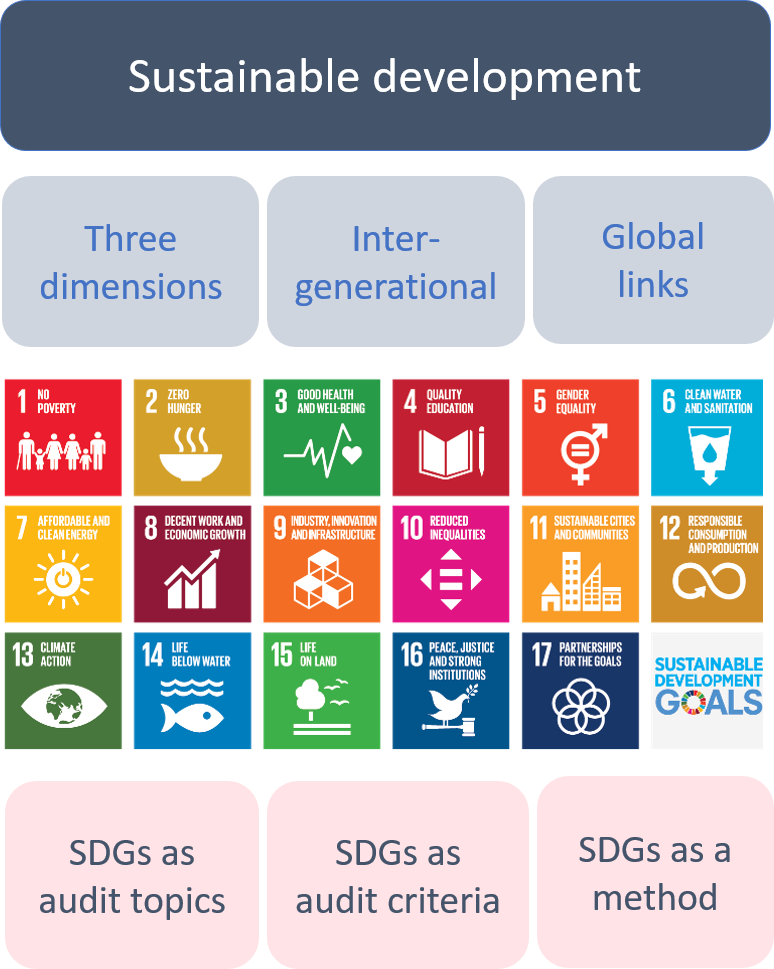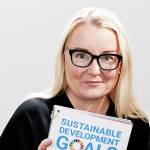This week we are celebrating the European Sustainable Development Week. We at the National Audit Office of Finland support the sustainable development of central government finances, audit the national implementation of the 2030 Agenda, and develop methods in international cooperation for the audit of sustainable development.
Assessment of measures to promote sustainable development should be improved
Sustainable development is an integral element of the NAOF’s strategy: our mission is to support the sustainable development of the state’s financial management. Sustainable development is also part of our international work, as the global umbrella organisation of Supreme Audit Institutions, INTOSAI, has committed to reporting to the UN on the national implementation of the 2030 Agenda and the Sustainable Development Goals (SDGs).
In 2019, INTOSAI reported to the UN on the insights of SAIs. In many countries, it was noted, for example, that sustainable development strategies have not yet been translated into national budget allocations. In its 2019 audit of the sustainable development governance model, the NAOF also stated that central government should improve the assessment of the costs of promoting sustainable development measures.
INTOSAI also examined the challenges faced by SAIs in the context of SDG audits and identified problems, for example, in the assessment of policy coherence and the availability and quality of information.
The UN’s Sustainable Development Goals are closely interconnected
At present, SAIs around the world assess the implementation of the Sustainable Development Goals from the point of view of public procurement, intimate partner violence, and environmental problems, for example.
For us at the NAOF, besides the individual SDGs, the focus is on the dynamics between all the goals, because overlapping or, in the worst case, adverse measures are wasteful from the point of view of central government finances. We are currently examining methods for analysing policy conflicts, as well as testing a tool developed by the USA and Brazil for identifying administrative overlaps and gaps.
The SDGs adopted in 2015 are important to us not only as an audit topic but also as a source of audit criteria. In addition to the SDGs, we consider the foundations of sustainable development, such as the perspective of future generations, to be important. For example, the lifecycle cost theme of our latest annual report represents this long-term perspective. It is important to examine the cost of investments throughout their lifecycle.

The coronavirus crisis highlights the global nature of sustainable development
This year, we have been combatting the coronavirus crisis. The entire crisis has resulted from human pressure on nature, and it has had a dramatic impact on both the global health situation and the global economy. A long-term perspective will also help to identify future crises, one of which is the climate crisis. The NAOF collaborates with its sister agencies on climate financing both in Europe and beyond. We develop tools for identifying long-term risks and assessing how the coronavirus stimulus packages support climate action.
The NAOF also chairs the global INTOSAI Working Group on Environmental Auditing. Nearly 80 countries are involved in the work, and at the moment we are focusing on plastic waste and sustainable transport in addition to climate financing. The chairmanship provides the NAOF with a front-row seat to participating in global environmental policy and enhancing our impact. Environmental problems and sustainability issues cannot be solved by a single country. The problems and solutions to them are global, and that is what the coronavirus crisis has shown us.
In the context of sustainable development, audit themes are extensive and interrelated and therefore require systemic, cross-sectoral examination. The time span is also often long. During this year and the next year, we will continue to develop our sustainable development approach and ways of better integrating the Sustainable Development Goals into our audit work.





